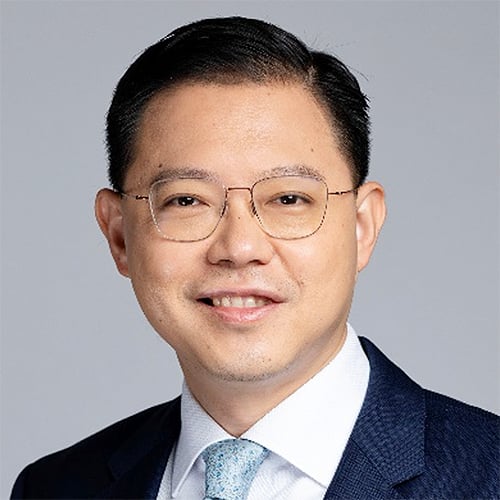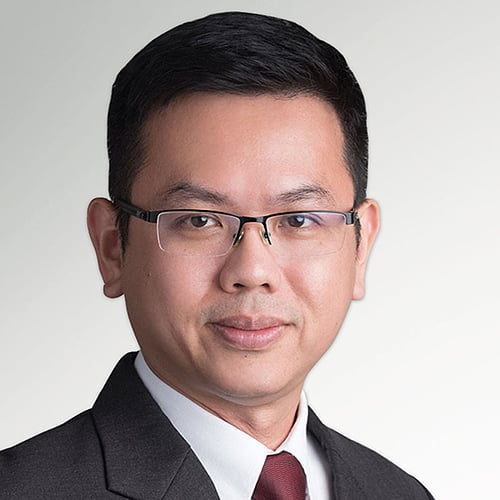Online video games have surged in demand during the Covid-19 pandemic as youngsters searched for ways to entertain themselves during the lockdowns. In the Philippines, the forced confinement, along with resulting massive unemployment, paved the way for the dramatic growth in the number of users of play-to-earn games.
By far the most popular, and the only one that actually provides significant earnings to its players, is Axie Infinity, the blockchain game created by Vietnamese startup SkyMavis.
“While Axie has been around for a couple of years now, it really organically grew in the past year. Of the 2.5 million active players, about half are in the Philippines,” says Luis Buenaventura, Philippine country manager of Yield Guild Games, a global organization that invests in non-fungible tokens (NFTs) used in such games.
In the past year, from around 80,000 users, there are now about 1.5 million Axie users in the Philippines, Buenaventura tells The Asset.
Axie, a game that is loosely based on the Pokemon games, allows players to earn Smooth Love Potion (SLP) tokens in exchange for winning battles and completing quests. SLPs can in turn be exchanged for other tokens or currencies on most crypto exchanges.
Costly game
While players can earn on average around 10,000 pesos (US$200) a month by playing just two to three hours a day – a substantial amount especially for those in developing countries like the Philippines – Axies themselves are not cheap, costing US$500 to US$600 to start playing.
“If you belong to the average low-income group, you cannot afford it. But the earnings are pretty substantial, especially considering an average Filipino family of five only earns about 22,000 pesos a month,” Buenaventura says.
This is where guilds like YGG come in.
YGG, which completed its US$4 million Series A investment round in June 2021, is essentially a rental service. The guild, the biggest in the Philippines, has tens of thousands of Axies, which the company rents out to players, who are called “scholars”. As of end-November, Buenaventura says they have about 7,000 scholars across the country.
“Players can use Axies for income, and in exchange we receive 10% of their earnings,” Buenaventura says, adding that YGG takes the smallest cut out of any guild or sponsor in the country. Other guilds, he says, take anywhere from 30% to 50% of a scholar’s earnings.
“We can do this because we are not concerned about profit. We have no intention of being profitable, since we are at the growth stage, and every dime we make goes back to more assets,” Buenaventura says.
Huge revenue
Where private sponsors and smaller guilds would want to recoup their investment in the initial purchase of Axies in three months, YGG says they can and do wait around two years to recoup their investments in a single Axie scholar. YGG also benefits from a close relationship with SkyMavis, the developer of Axie Infinity: Aleksander Larsen, SkyMavis’ chief operating officer, is listed as an adviser to the company.
SkyMavis, on the otherhand, found a winner in Axie Infinity. According to metering company DappRadar, players of the game have been able to generate US$2.05 billion in revenue from the cryptogame.
“We’re more concerned about getting more users since we want to position ourselves to be the biggest in the space. At the same time, we are committed to educating our scholars,” Buenaventura says.
The large variation in how much a sponsor or guild can take from players is partly due to the still-unregulated nature of cryptogames in the country.
While the Bangko Sentral ng Pilipinas (BSP) earlier said it is studying the possibility of classifying Axie and other similar games as an operator of payment system (OPS), tokens used in play-to-earn online games broadly fall within the definition of virtual assets.
However, a January 2021 set of guidelines on Virtual Asset Service Providers (VASPs) also specifically excludes digital units of exchange used as in-game tokens, such as SLPs, in its scope.
Still, in a November 2021 press briefing, central bank governor Benjamin Diokno said the BSP is monitoring how players are exchanging tokens earned from cryptogames.
Should Axie and other cryptogames be classified as an OPS, they will be required to register with the BSP.
Regulatory framework
YGG’s Buenaventura, however, insists that cryptogames are part of a larger ecosystem that is pretty regulated in and of itself.
“Cryptocurrencies are as regulated as the stock market. The amount of regulation you are required to undergo is roughly the same as most banks. The only thing that is different is the way users are accumulating the cryptocurrencies that they have,” Buenaventura says.
Earning crypto instead of buying it doesn’t fall in any kind of regulatory framework because the BSP has never seen anything like this, and neither has any regulator anywhere else in the world, Buenaventura says.
In an advisory, the BSP tells those engaging in these games to “be thoroughly aware of how these work as the digital space provides a borderless and wider playing field for fraudsters or cyber criminals to carry out illicit financial activities”.
The central bank also warns the public against the potential for unlawful use of digital gaming tokens, since transactions have a high degree of anonymity and are not subject to Know Your Customer (KYC) policies and are prone to theft or loss through hacking, theft, virus infection or cyberthreats.
Since transactions are immediate and irreversible, users who fall victim to fraudulent, unauthorized, or erroneous transactions may find it difficult to reverse these and end-users may be unable to file complaints or seek recourse since there is no central authority or issuer that supports or guarantees these digital gaming tokens.
Prone to volatility
The BSP also says the nature of virtual assets such as SLP means it is subject to speculation, and therefore prone to volatility.
Players of the cryptogame are already feeling this volatility – SLP’s peso value hit a record-high of 20 pesos, but as of last week, the rate has plunged down to 1.50 pesos.
The draw of the game – being able to earn while playing – is also proving to be one reason for the freefall of prices of SLP, since players tend to cash out instead of injecting the SLP back into the game.
In October 2021, in a move that was seen as an effort to stem the rapid drop in value of SLP, SkyMavis introduced a new in-game rule that prevents lower-ranked players from earning tokens until they reach a certain level.
Buenaventura acknowledges that the world of cryptogaming is still “very much a free market”.
“Unfair business practices do exist, but on the other end, there are also guilds that strive to help people. There is lots of work ahead for us,” he says.
In addition to Axie Infinity, YGG has also invested in other blockchain-based games. It remains to be seen, however, if any will be as popular – or as profitable – as Axie Infinity.









